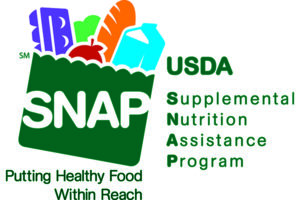 Roughly one out of seven older adults in Massachusetts depend on the Supplemental Nutrition Assistance Program (SNAP, formerly Food Stamps). These older adults in our communities are facing heightened uncertainty, as federal government shutdowns and sweeping legislative changes reshape the landscape of food support. Two factors—delays and legal disputes stemming from the shutdown, and new eligibility restrictions created by federal legislation passed this summer—are leaving many seniors questioning what comes next.
Roughly one out of seven older adults in Massachusetts depend on the Supplemental Nutrition Assistance Program (SNAP, formerly Food Stamps). These older adults in our communities are facing heightened uncertainty, as federal government shutdowns and sweeping legislative changes reshape the landscape of food support. Two factors—delays and legal disputes stemming from the shutdown, and new eligibility restrictions created by federal legislation passed this summer—are leaving many seniors questioning what comes next.
Due to the recent federal shutdown, thousands of Massachusetts SNAP recipients experienced troubling delays in receiving their November benefits. As the Massachusetts Department of Transitional Assistance (DTA) scrambled to issue payments, the situation grew more confusing following conflicting actions by federal courts and the U.S. Department of Agriculture (USDA). Some people have received their November funds and have been able to use them, while others have been told to expect benefits on their normal payment date this week. This period of uncertainty has been especially challenging for older adults living on fixed incomes.
Beyond temporary shutdown impacts, legislation recently enacted at the federal level is poised to bring more lasting changes. The bill introduces stricter eligibility requirements for many SNAP recipients in Massachusetts, disproportionately affecting adults aged 60–65. Reports estimate that roughly 99,000 residents in this age group will now face more demanding work documentation or risk losing their benefits. An additional 45,000 may see reduced SNAP monthly amounts or lose utility assistance due to increased paperwork. Immigrants and refugees in the older population could lose eligibility altogether.
The average monthly SNAP benefit for a Massachusetts senior is $147, but even minor disruptions or reductions can push vulnerable adults to make tough choices between groceries, medications, and utility bills. Paperwork and digital barriers also complicate the recertification process, especially those with mobility or health challenges. In addition, a significant number of older SNAP clients are immigrants, who must now contend with stricter documentation and eligibility checks.
For those affected—or assisting others—several resources provide information and support:
- Massachusetts SNAP Updates: mass.gov/SNAPUpdates)
- DTA Senior Assistance Office: Special help for people aged 60+; call 833-712‐8027 for support with applications and paperwork.
- The Open Door, 978-283-6776, foodpantry.org
- Beverly Bootstraps, 978-927-1561, beverlybootstraps.org
- Acord Food Pantry, 978-468-7424, acordfoodpantry.org
- Project Bread FoodSource Hotline, 800-645-8333
- SeniorCare has Meals on Wheels (home delivered meals) and Community Dining Sites throughout our nine-community area. Learn more about these programs at seniorcareinc.org or by calling 978-281-1750.
- SeniorCare is compiling a database of additional resources for food assistance. Call 978-281-1750 and ask to speak with an Information & Referral Specialist.
It’s critical to stay alert for mailed and texted updates from DTA regarding any changes in your SNAP case. If you experience reductions or loss of SNAP, contact DTA immediately for an explanation and to discuss possible options or appeals.
Massachusetts continues to fight for robust SNAP support. For now, seniors are encouraged to use all available resources and stay closely connected to their local assistance offices as this complex situation evolves. In addition, everyone is encouraged to check in on older family, friends and neighbors who may be quietly feeling the squeeze. Food security is a community responsibility; small acts — sharing a meal, sharing a hotline number, or giving a ride to a pantry — can make a big difference.
